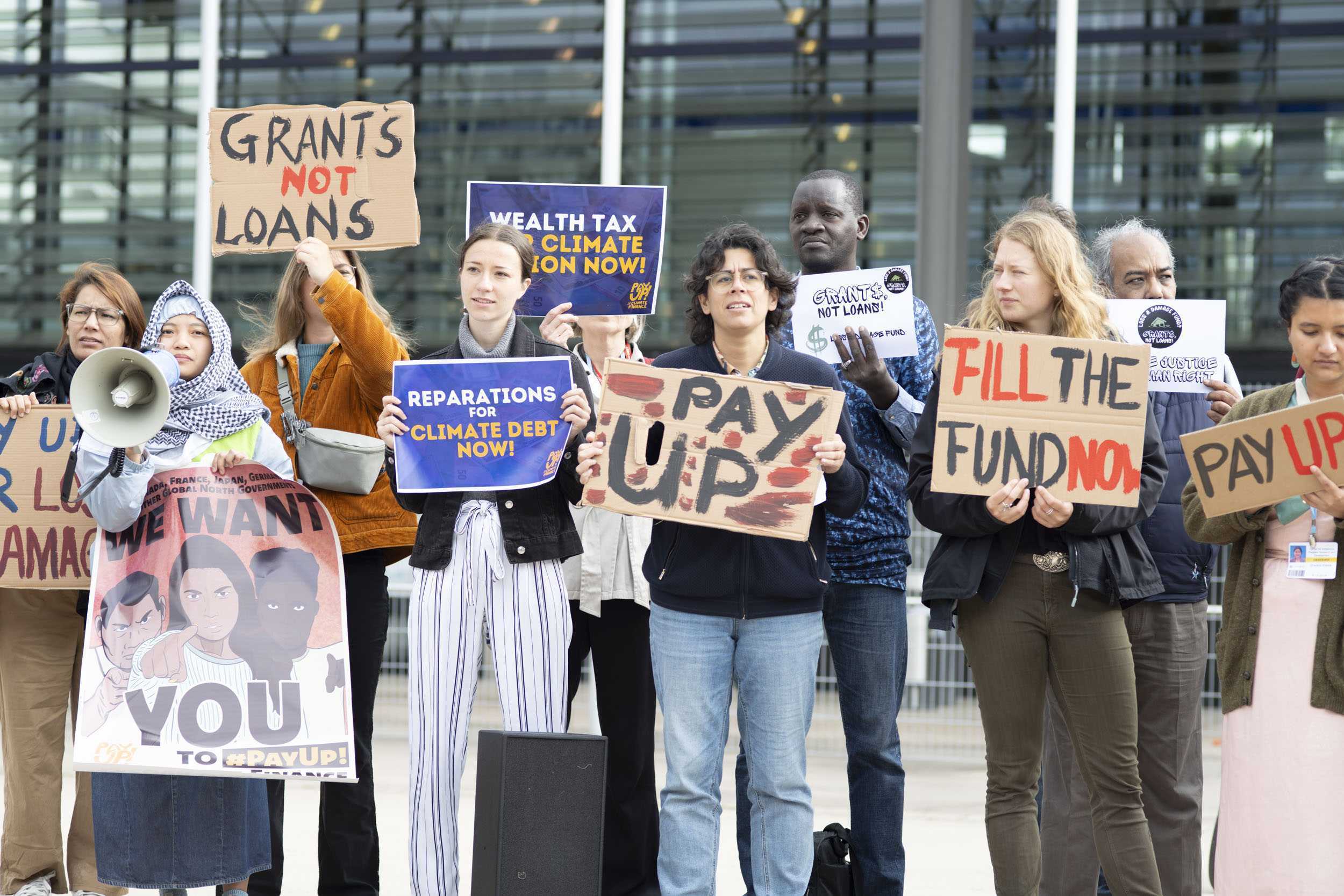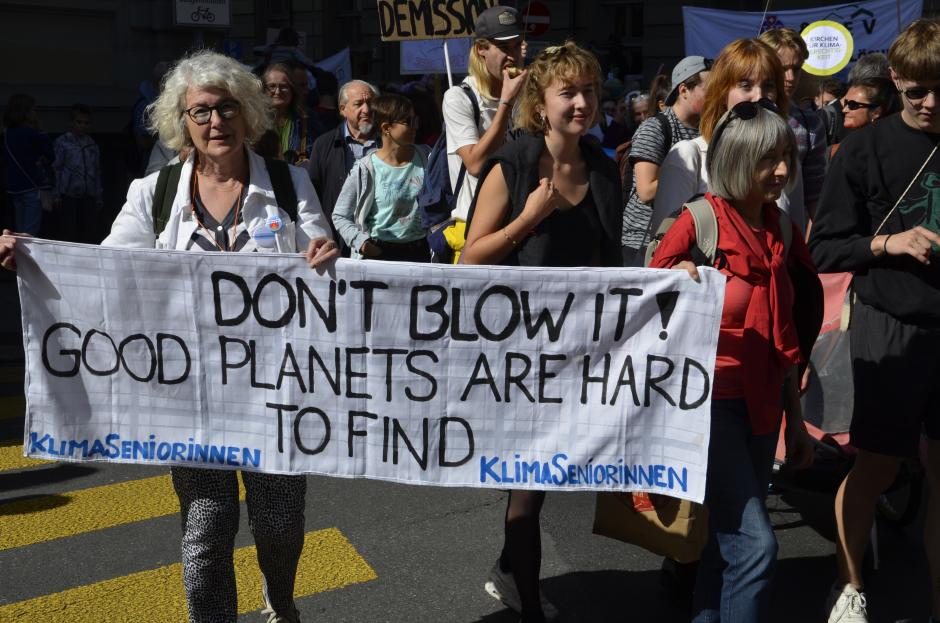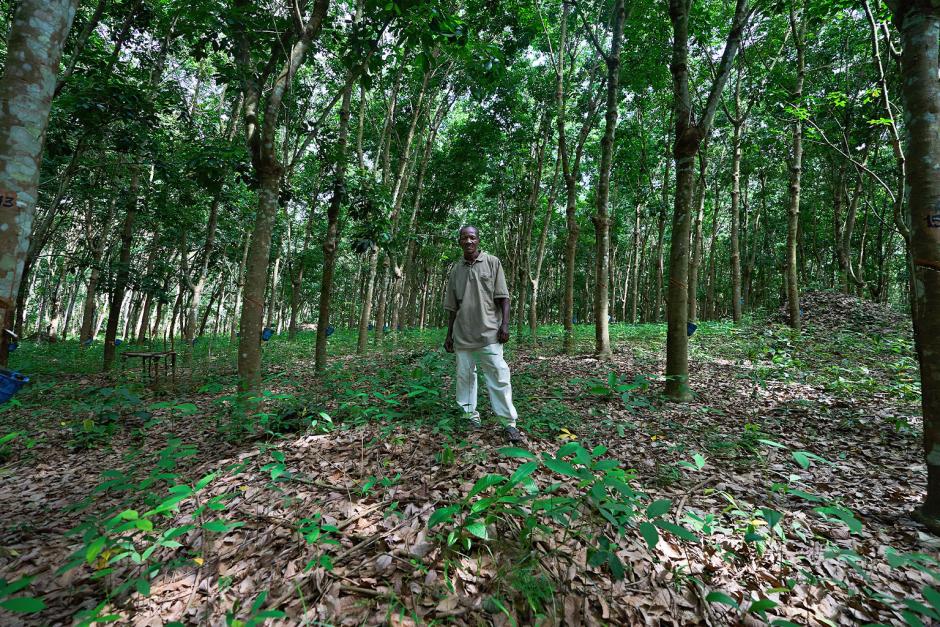The 60th climate negotiation sessions – or ‘SB60’- just concluded in Bonn, Germany. Among other issues, SB60 addressed the operationalization of the Loss and Damage Fund (LDF) and the post-2025 climate finance goals, also known as the New Collective Quantified Goal (NCQG). The negotiations aim to lead to agreement on both issues at this year’s Conference of Parties (COP29) in Azerbaijan. ESCR-Net members closely followed SB60, actively engaged in various cross-constituency actions guided by collective analysis established post COP28 in Dubai.

© 2024 Teo Ormond-Skeaping/Loss and Damage Collaboration
It is a progress to see that the LDF is nearly operational. This is important as the climate crisis and injustices are increasingly harming communities and violating human rights, especially the right to food and nutrition. It is also critical to understand that the UNFCCC processes are not separated from human rights issues and mechanisms. We demand for the LDF that is grant-based, grounded in human rights, and fully operational coming out of COP29 in Azerbaijan.
The United States, having 1700 times more carbon footprint in comparison with Costa Rica […] do not fulfill their obligations based on Article 2 of the Paris Agreement to protect the environment. […]What is being negotiated here at SB60 is not only irrational but is illegal because it does not conform with States’ legal obligations. When countries say, Well, I am donating. What else do you want me to do? Well, we want you to fulfill your legal obligations. That is it.
Paragraph 51 of the Paris Agreement does not undo the pre-existing international human rights law (and) […] does not negate the right to remedy and full reparations that applies in the context of climate harm regardless of Paragraph 51.
Unsustainable resource-intensive options have no place in a just energy transition. It is crucial to understand that loss and damage are not only about the negative impacts of climate change but also have to cover the impacts of climate false solutions that increase the vulnerability of food security and environmental damages. The call for climate reparation needs to address the shareholders of IFIs and the decision-makers of climate finance within the UN system, which the governments of the industrialized countries dominate. We have to call for the accountability of those global polluters.
In Bonn, the parties only agreed on procedural conclusions, but civil society organizations advocated for the inclusion of the principles of a just transition and the impacts of climate action on all human rights: labor, social, economic, and environmental. The justice dimension must also take into account the difference in the impacts of the transition in different areas of the planet, for example, the impacts of the extraction of minerals critical to the transition on sensitive ecosystems, endangering vulnerable communities and repeating the problems that fossil fuel extraction brought in the past.
We have seen during the SB60 negotiations, a lot of attempts from the Global North to push just transition as a domestic action in the Global South countries. A transition will be just if it addresses the root cause of climate crises, especially trades, debts and financial architecture which are the systemic bottlenecks, as well as social, cultural, gender and environmental aspects.

© 2024 Teo Ormond-Skeaping/Loss and Damage Collaboration
As the SB60 came to a conclusion, it is deeply concerning to see how the Global North countries continue to block urgent climate actions and divert each conversation when it comes to means of implementation and financing. Without concrete and adequate commitments from the wealthy, industrialized countries, the next SBs would conclude without any meaningful progress. We demand the Global North countries not to repeat history and meaningfully tackle the worsening climate crisis.

